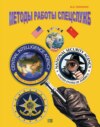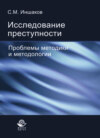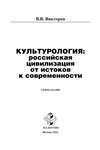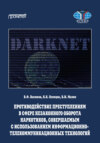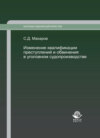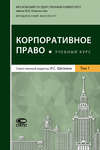Читать книгу: «Courts and Criminals»
CHAPTER I. The Pleasant Fiction of the Presumption of Innocence
There was a great to-do some years ago in the city of New York over an ill-omened young person, Duffy by name, who, falling into the bad graces of the police, was most incontinently dragged to headquarters and "mugged" without so much as "By your leave, sir," on the part of the authorities. Having been photographed and measured (in most humiliating fashion) he was turned loose with a gratuitous warning to behave himself in the future and see to it that he did nothing which might gain him even more invidious treatment.
Now, although many thousands of equally harmless persons had been similarly treated, this particular outrage was made the occasion of a vehement protest to the mayor of the city by a certain member of the judiciary, who pointed out that such things in a civilized community were shocking beyond measure, and called upon the mayor to remove the commissioner of police and all his staff of deputy commissioners for openly violating the law which they were sworn to uphold. But, the commissioner of police, who had sometimes enforced the penal statutes in a way to make him unpopular with machine politicians, saw nothing wrong in what he had done, and, what was more, said so most outspokenly. The judge said, "You did," and the commissioner said, "I didn't." Specifically, the judge was complaining of what had been done to Duffy, but more generally he was charging the police with despotism and oppression and with systematically disregarding the sacred liberties of the citizens which it was their duty to protect.
Accordingly the mayor decided to look into the matter for himself, and after a lengthy investigation came to the alleged conclusion that the "mugging" of Duffy was a most reprehensible thing and that all those who were guilty of having any part therein should be instantly removed from office. He, therefore, issued a pronunciamento to the commissioner demanding the official heads of several of his subordinates, which order the commissioner politely declined to obey. The mayor thereupon removed him and appointed a successor, ostensibly for the purpose of having in the office a man who should conduct the police business of the city with more regard for the liberties of the inhabitants thereof. The judge who had started the rumpus expressed himself as very much pleased and declared that now at last a new era had dawned wherein the government was to be administered with a due regard for law.
Now, curiously enough, although the judge had demanded the removal of the commissioner on the ground that he had violated the law and been guilty of tyrannous and despotic conduct, the mayor had ousted him not for pursuing an illegal course in arresting and "mugging" a presumptively innocent man (for illegal it most undoubtedly was), but for inefficiency and maladministration in his department.
Said the mayor in his written opinion:
"After thinking over this matter with the greatest care, I am led to the conclusion that as mayor of the city of New York I should not order the police to stop taking photographs of people arrested and accused of crime or who have been indicted by grand juries. That grave injustice may occur the Duffy case has demonstrated, but I feel that it is not the taking of the photograph that has given cause to the injustice, but the inefficiency and maladministration of the police department, etc."
In other words, the mayor set the seal of his official approval upon the very practice which caused the injustice to Duffy. "Mugging" was all right, so long as you "mugged" the right persons.
The situation thus outlined was one of more than passing interest. A sensitive point in our governmental nervous system had been touched and a condition uncovered that sooner or later must be diagnosed and cured.
For the police have no right to arrest and photograph a citizen unconvicted of crime, since it is contrary to law. And it is ridiculous to assert that the very guardians of the law may violate it so long as they do so judiciously and do not molest the Duffys. The trouble goes deeper than that. The truth is that we are up against that most delicate of situations, the concrete adjustment of a theoretical individual right to a practical necessity. The same difficulty has always existed and will always continue to exist whenever emergencies requiring prompt and decisive action arise or conditions obtain that must be handled effectively without too much discussion. It is easy while sitting on the piazza with your cigar to recognize the rights of your fellow-men, you may assert most vigorously the right of the citizen to immunity from arrest without legal cause, but if you saw a seedy character sneaking down a side street at three o'clock in the morning, his pockets bulging with jewelry and silver! Would you have the policeman on post insist on the fact that a burglary had been committed being established beyond peradventure before arresting the suspect, who in the meantime would undoubtedly escape? Of course, the worthy officer sometimes does this, but his conduct in that case becomes the subject of an investigation on the part of his superiors. In fact, the rules of the New York police department require him to arrest all persons carrying bags in the small hours who cannot give a satisfactory account of themselves. Yet there is no such thing under the laws of the State as a right "to arrest on suspicion." No citizen may be arrested under the statutes unless a crime has actually been committed. Thus, the police regulations deliberately compel every officer either to violate the law or to be made the subject of charges for dereliction of duty. A confusing state of things, truly, to a man who wants to do his duty by himself and by his fellow-citizens!
The present author once wrote a book dealing with the practical administration of criminal justice, in which the unlawfulness of arrest on mere "suspicion" was discussed at length and given a prominent place. But when the time came for publication that portion of it was omitted at the earnest solicitation of certain of the authorities on the ground that as such arrests were absolutely necessary for the enforcement of the criminal law a public exposition of their illegality would do infinite harm. Now, as it seems, the time has come when the facts, for one reason or another, should be faced. The difficulty does not end, however, with "arrest on suspicion," "the third degree," "mugging," or their allied abuses. It really goes to the root of our whole theory of the administration of the criminal law. Is it possible that on final analysis we may find that our enthusiastic insistence upon certain of the supposedly fundamental liberties of the individual has led us into a condition of legal hypocrisy vastly less desirable than the frank attitude of our continental neighbors toward such subjects?
The Massachusetts Constitution of 1785 concludes with the now famous words: "To the end that this may be a government of laws and not of men." That is the essence of the spirit of American government. Our forefathers had arisen and thrown off the yoke of England and her intolerable system of penal government, in which an accused had no right to testify in his own behalf and under which he could be hung for stealing a sheep. "Liberty!" "Liberty or death!" That was the note ringing in the minds and mouths of the signers of the Declaration and framers of the Constitution. That is the popular note to-day of the Fourth of July orator and of the Memorial Day address. This liberty was to be guaranteed by laws in such a way that it was never to be curtailed or violated. No mere man was to be given an opportunity to tamper with it. The individual was to be protected at all costs. No king, or sheriff, or judge, or officer was to lay his finger on a free man save at his peril. If he did, the free man might immediately have his "law"—"have the law on him," as the good old expression was—for no king or sheriff was above the law. In fact, we were so energetic in providing safeguards for the individual, even when a wrong-doer, that we paid very little attention to the effectiveness of kings or sheriffs or what we had substituted for them. And so it is to-day. What candidate for office, what silver-tongued orator or senator, what demagogue or preacher could hold his audience or capture a vote if, when it came to a question of liberty, he should lift up his voice in behalf of the rights of the majority as against the individual?
Accordingly in devising our laws We have provided in every possible way for the freedom of the citizen from all interference on the part of the authorities. No one may be stopped, interrogated, examined, or arrested unless a crime has been committed. Every one is presumed to be innocent until shown to be guilty by the verdict of a jury. No one's premises may be entered or searched without a warrant which the law renders it difficult to obtain. Every accused has the right to testify in his own behalf, like any other witness. The fact that he has been held for a crime by a magistrate and indicted by a grand jury places him at not the slightest disadvantage so far as defending himself against the charge is concerned, for he must be proven guilty beyond any reasonable doubt. These illustrations of the jealousy of the law for the rights of citizens might be multiplied to no inconsiderable extent. Further, our law allows a defendant convicted of crime to appeal to the highest courts, whereas if he be acquitted the people or State of New York have no right of appeal at all.
Without dwelling further on the matter it is enough to say that in general the State constitutions, their general laws, or penal statutes provide that a person who is accused or suspected of crime must be presumed innocent and treated accordingly until his guilt has been affirmatively established in a jury trial; that meantime he must not be confined or detained unless a crime has in fact been committed and there is at least reasonable cause to believe that he has committed it; and, further, that if arrested he must be given an immediate opportunity to secure bail, to have the advice of counsel, and must in no way be compelled to give any evidence against himself. So much for the law. It is as plain as a pikestaff. It is printed in the books in words of one syllable. So far as the law is concerned we have done our best to perpetuate the theories of those who, fearing that they might be arrested without a hearing, transported for trial, and convicted in a king's court before a king's judge for a crime they knew nothing of, insisted on "liberty or death." They had had enough of kings and their ways. Hereafter they were to have "a government of laws and not of men."
But the unfortunate fact remains that all laws, however perfect, must in the end be administered by imperfect men. There is, alas! no such thing as a government of laws and not of men. You may have a government more of laws and less of men, or vice versa, but you cannot have an auto-administration of the Golden Rule. Sooner or later you come to a man—in the White House, or on a wool sack, or at a desk in an office, or in a blue coat and brass buttons—and then, to a very considerable extent, the question of how far ours is to be a government of laws or of men depends upon him. Generally, so far as he is concerned, it is going to be of man, for every official finds that the letter of the law works an injustice many times out of a hundred. If he is worth his salary he will try to temper justice with mercy. If he is human he will endeavor to accomplish justice as he sees it so long as the law can be stretched to accommodate the case. Thus, inevitably there is a conflict between the law and its application. It is the human element in the administration of the law that enables lawyers to get a living. It is usually not difficult to tell what the law is; the puzzle is how it is going to be applied in any individual case. How it is going to be applied depends very largely upon the practical side of the matter and the exigencies of existing conditions.
It is pretty hard to apply inflexibly laws over a hundred years old. It is equally hard to police a city of a million or so polyglot inhabitants with a due regard to their theoretic constitutional rights. But suppose in addition that these theoretic rights are entirely theoretic and fly in the face of the laws of nature, experience, and common sense? What then? What is a police commissioner to do who has either got to make an illegal arrest or let a crook get away, who must violate the rights of men illegally detained by outrageously "mugging" them or egregiously fail to have a record of the professional criminals in his bailiwick? He does just what all of us do under similar conditions—he "takes a chance." But in the case of the police the thing is so necessary that there ceases practically to be any "chance" about it. They have got to prevent crime and arrest criminals. If they fail they are out of a job, and others more capable or less scrupulous take their places. The fundamental law qualifying all systems is that of necessity. You can't let professional crooks carry off a voter's silverware simply because the voter, being asleep, is unable instantly to demonstrate beyond a reasonable doubt that his silver has been stolen. You can't permit burglars to drag sacks of loot through the streets of the city at 4 A.M. simply because they are presumed to be innocent until proven guilty. And if "arrest on suspicion" were not permitted, demanded by the public, and required by the police ordinances, away would go the crooks and off would go the silverware, the town would be full of "leather snatchers" and "strong-arm men," respectable citizens would be afraid to go out o' nights, and liberty would degenerate into license. That is the point. We Americans, or at least some of the newer ones of us, have an idea that "liberty" means the right to steal apples from our neighbor's orchard without interference. Now, somewhere or other, there has got to be a switch and a strong arm to keep us in order, and the switch and arm must not wait until the apples are stolen and eaten before getting busy. If we come climbing over the fence sweating apples at every pore, is Farmer Jones to go and count his apples before grabbing us?
The most presumptuous of all presumptions is this "presumption of innocence." It really doesn't exist, save in the mouths of judges and in the pages of the law books. Yet as much to-do is made about it as if it were a living legal principle. Every judge in a criminal case is required to charge the jury in form or substance somewhat as follows: "The defendant is presumed to be innocent until that presumption is removed by competent evidence"… "This presumption is his property, remaining with him throughout the trial and until rebutted by the verdict of the jury."… "The jury has no right to consider the fact that the defendant stands at the bar accused of a crime by an indictment found by the grand jury." Shades of Sir Henry Hawkins! Does the judge expect that they are actually to swallow that? Here is a jury sworn "to a true verdict find" in the case of an ugly looking customer at the bar who is charged with knocking down an old man and stealing his watch. The old man—an apostolic looking octogenarian—is sitting right over there where the jury can see him. One look at the plaintiff and one at the accused and the jury may be heard to mutter, "He's guilty,—all right!"
"Presumed to be innocent?" Why, may I ask? Do not the jury and everybody else know that this good old man would never, save by mistake, accuse anybody falsely of crime? Innocence! Why, the natural and inevitable presumption is that the defendant is guilty! The human mind works intuitively by comparison and experience. We assume or presume with considerable confidence that parents love their children, that all college presidents are great and good men, and that wild bulls are dangerous animals. We may be wrong. But it is up to the other fellow to show us the contrary.
Now, if out of a clear sky Jones accuses Robinson of being a thief we know by experience that the chances are largely in favor of Jones's accusation being well founded. People as a rule don't go rushing around charging each other with being crooks unless they have some reason for it. Thus, at the very beginning the law flies in the face of probabilities when it tells us that a man accused of crime must be presumed to be innocent. In point of fact, whatever presumption there is (and this varies with the circumstances) is all the other way, greater or less depending upon the particular attitude of mind and experience of the individual.
This natural presumption of guilt from the mere fact of the charge is rendered all the more likely by reason of the uncharitable readiness with which we believe evil of our fellows. How unctuously we repeat some hearsay bit of scandal. "I suppose you have heard the report that Deacon Smith has stolen the church funds?" we say to our friends with a sententious sigh—the outward sign of an invisible satisfaction. Deacon Smith after the money-bag? Ha! ha! Of course, he's guilty! These deacons are always guilty! And in a few minutes Deacon Smith is ruined forever, although the fact of the matter may well have been that he was but counting the money in the collection-plate. This willingness to believe the worst of others is a matter of common knowledge and of historical and literary record. "The evil that men do lives after them—" It might well have been put, "The evil men are said to have done lives forever." However unfair, this is a psychologic condition which plays an important part in rendering the presumption of innocence a gross absurdity.
But let us press the history of Jones and Robinson a step further. The next event in the latter's criminal history is his appearance in court before a magistrate. Jones produces his evidence and calls his witnesses. Robinson, through his learned counsel, cross-examines them and then summons his own witnesses to prove his innocence. The proceeding may take several days or perhaps weeks. Briefs are submitted. The magistrate considers the testimony and finally decides that he believes Robinson guilty and must hold him for the action of the grand jury. You might now, it would perhaps seem, have some reason for suspecting that Robinson was not all that he should be. But no! He is still presumed in the eyes of the law, and theoretically in the eyes of his fellows, to be as innocent as a babe unborn. And now the grand jury take up and sift the evidence that has already been gone over by the police judge. They, too, call witnesses and take additional testimony. They likewise are convinced of Robinson's guilt and straightway hand down an indictment accusing him of the crime. A bench warrant issues. The defendant is run to earth and ignominiously haled to court. But he is still presumed to be innocent! Does not the law say so? And is not this a "government of laws"? Finally, the district attorney, who is not looking for any more work than is absolutely necessary, investigates the case, decides that it must be tried and begins to prepare it for trial. As the facts develop themselves Robinson's guilt becomes more and more clear. The unfortunate defendant is given any opportunity he may desire to explain away the charge, but to no purpose.
The district attorney knows Robinson is guilty, and so does everybody else, including Robinson. At last this presumably innocent man is brought to the bar for trial. The jury scan his hang-dog countenance upon which guilt is plainly written. They contrast his appearance with that of the honest Jones. They know he has been accused, held by a magistrate, indicted by a grand jury, and that his case, after careful scrutiny, has been pressed for trial by the public prosecutor. Do they really presume him innocent? Of course not. They presume him guilty. "So soon as I see him come through dot leetle door in the back of the room, then I know he's guilty!" as the foreman said in the old story. What good does the presumption of innocence, so called, do for the miserable Robinson? None whatever—save perhaps to console him in the long days pending his trial. But such a legal hypocrisy could never have deceived anybody. How much better it would be to cast aside all such cant and frankly admit that the attitude of the continental law toward the man under arrest is founded upon common sense and the experience of mankind. If he is the wrong man it should not be difficult for him to demonstrate the fact. At any rate circumstances are against him, and he should be anxious to explain them away if he can.
The fact of the matter is, that in dealing with practical conditions, police methods differ very little in different countries. The authorities may perhaps keep considerably more detailed "tabs" on people in Europe than in the United States, but if they are once caught in a compromising position they experience about the same treatment wherever they happen to be. In France (and how the apostles of liberty condemn the iniquity of the administration of criminal justice in that country!) the suspect or undesirable receives a polite official call or note, in which he is invited to leave the locality as soon as convenient. In New York he is arrested by a plainclothes man, yanked down to Mulberry Street for the night, and next afternoon is thrust down the gangplank of a just departing Fall River liner. Many an inspector has earned unstinted praise (even from the New York Evening Post) by "clearing New York of crooks" or having a sort of "round-up" of suspicious characters whom, after proper identification, he has ejected from the city by the shortest and quickest possible route. Yet in the case of every person thus arrested and driven out of the town he has undoubtedly violated constitutional rights and taken the law into his own hands.
What redress can a penniless tramp secure against a stout inspector of police able and willing to spend a considerable sum of money in his own defence, and with the entire force ready and eager to get at the tramp and put him out of business? He swallows his pride, if he has any, and ruefully slinks out of town for a period of enforced abstinence from the joys of metropolitan existence. Yet who shall say that, in spite of the fact that it is a theoretic outrage upon liberty, this cleaning out of the city is not highly desirable? One or two comparatively innocent men may be caught in the ruck, but they generally manage to intimate to the police that the latter have "got them wrong" and duly make their escape. The others resume their tramp from city to city, clothed in the presumption of their innocence.
Since the days of the Doges or of the Spanish Inquisition there has never been anything like the morning inspection or "line up" of arrested suspects at the New York police head-quarters.* (*Now abolished.) One by one the unfortunate persons arrested during the previous night (although not charged with any crime) are pointed out to the assembled detective force, who scan them from beneath black velvet masks in order that they themselves may not be recognized when they meet again on Broadway or the darker side streets of the city. Each prisoner is described and his character and past performances are rehearsed by the inspector or head of the bureau. He is then measured, "mugged," and, if lucky, turned loose. What does his liberty amount to or his much-vaunted legal rights if the city is to be made safe? Yet why does not some apostle of liberty raise his voice and cry aloud concerning the wrong that has been done? Are not the rights of a beggar as sacred as those of a bishop?
One of the most sacred rights guaranteed under the law is that of not being compelled to give evidence against ourselves or to testify to anything which might degrade or incriminate us. Now, this is all very fine for the chap who has his lawyer at his elbow or has had some similar previous experience. He may wisely shut up like a clam and set at defiance the tortures of the third degree. But how about the poor fellow arrested on suspicion of having committed a murder, who has never heard of the legal provision in question, or, if he has, is cajoled or threatened into "answering one or two questions"? Few police officers take the trouble to warn those whom they arrest that what they say may be used against them. What is the use? Of course, when they testify later at the trial they inevitably begin their testimony with the stereotyped phrase, "I first warned the defendant that anything which he said might be used against him." If they did warn him they probably whispered it or mumbled it so that he didn't hear what they said, or, in any event, whether they said it or not, half a dozen of them probably took him into a back room and, having set him with his back against the wall, threatened and swore at him until he told them what he knew, or thought he knew, and perhaps confessed his crime. When the case comes to trial the police give the impression that the accused quietly summoned them to his cell to make a voluntary statement. The defendant denies this, of course, but the evidence goes in and the harm has been done. No doubt the methods of the inquisition are in vogue the world over under similar conditions. Everybody knows that a statement by the accused immediately upon his arrest is usually the most important evidence that can be secured in any case. It is a police officer's duty to secure one if he can do so by legitimate means. It is his custom to secure one by any means in his power. As his oath, that such a statement was voluntary, makes it ipso facto admissible as evidence, the statutes providing that a defendant cannot be compelled to give evidence against himself are practically nullified.
In the more important cases the accused is usually put through some sort of an inquisitorial process by the captain at the station-house. If he is not very successful at getting anything out of the prisoner the latter is turned over to the sergeant and a couple of officers who can use methods of a more urgent character. If the prisoner is arrested by headquarters detectives, various efficient devices to compel him to "give up what he knows" may be used—such as depriving him of food and sleep, placing him in a cell with a "stool pigeon" who will try to worm a confession out of him, and the usual moral suasion of a heart-to-heart talk in the back room with the inspector.
This is the darker side of the picture of practical government. It is needless to say that the police do not always suggest the various safeguards and privileges which the law accords to defendants thus arrested, but the writer is free to confess that, save in exceptional cases, he believes the rigors of the so-called third degree to be greatly exaggerated. Frequently in dealing with rough men rough methods are used, but considering the multitude of offenders, and the thousands of police officers, none of whom have been trained in a school of gentleness, it is surprising that severer treatment is not generally met with on the part of those who run afoul of the criminal law. The ordinary "cop" tries to do his duty as effectively as he can. With the average citizen gruffness and roughness go a long way in the assertion of authority. In the task of policing a big city, the rights of the individual must indubitably suffer to a certain extent if the rights of the multitude are to be properly protected. We can make too much of small injustices and petty incivilities. Police business is not gentle business. The officers are trying to prevent you and me from being knocked on the head some dark night or from being chloroformed in our beds. Ten thousand men are trying to do a thirty-thousand-man job. The struggle to keep the peace and put down crime is a hard one anywhere. It requires a strong arm that cannot show too punctilious a regard for theoretical rights when prompt decisions have to be made and equally prompt action taken. The thieves and gun men have got to be driven out. Suspicious characters have got to be locked up. Somehow or other a record must be kept of professional criminals and persons likely to be active in law-breaking. These are necessities in every civilized country. They are necessities here. Society employs the same methods of self-protection the world over. No one presumes a person charged with crime to be innocent, either in Delhi, Pekin, Moscow, or New York. Under proper circumstances we believe him guilty. When he comes to be tried the jury consider the evidence, and if they are reasonably sure he is guilty they convict him. The doctrine of reasonable doubt is almost as much of a fiction as that of the presumption of innocence. From the time a man is arrested until arraignment he is quizzed with a view to inducing him to admit his offence or give some evidence that may help convict him. Logically, why should not a person charged with a crime be obliged to give what explanation he can of the affair? Why should he have the privilege of silence? Doesn't he owe a duty to the public the same as any other witness? If he is innocent he has nothing to fear; if he is guilty—away with him! The French have no false ideas about such things and at the same time they have a high regard for liberty. We merely cheat ourselves into thinking that our liberty is something different from French liberty because we have a lot of laws upon our statute books that are there only to be disregarded and would have to be repealed instantly if enforced.
Take, for instance, the celebrated provision of the penal laws that the failure of an accused to testify in his own behalf shall not be taken against him. Such a doctrine flies in the face of human nature. If a man sits silent when witnesses under oath accuse him of a crime it is an inevitable inference that he has nothing to say—that no explanation of his would explain. The records show that the vast majority of accused persons who do not avail themselves of the opportunity to testify are convicted. Thus, the law which permits a defendant to testify in reality compels him to testify, and a much-invoked safeguard of liberty turns out to be a privilege in name only. In France or America alike a man accused of crime sooner or later has to tell what he knows—or take his medicine. It makes little difference whether he does so under the legalized interrogation of a "juge d'instruction" in Paris or under the quasi-voluntary examination of an assistant district attorney or police inspector in New York. It is six of one and half a dozen of the other if at his trial in France he remains mute under examination or in America refrains from availing himself of the privilege of testifying in his own behalf.
Покупайте книги и получайте бонусы в Литрес, Читай-городе и Буквоеде.
Участвовать в бонусной программе



